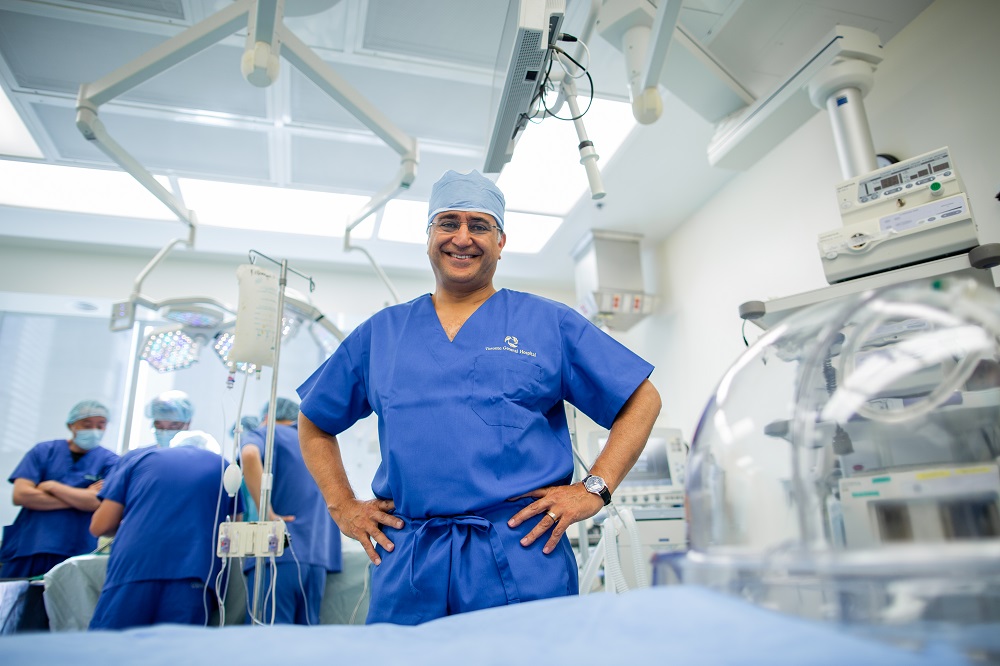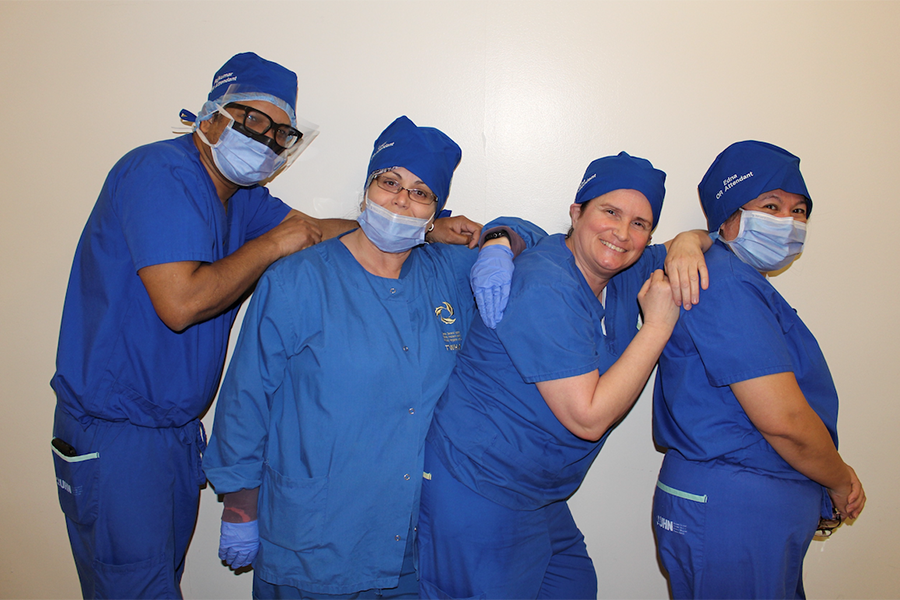
Dr. Shaf Keshavjee, Surgeon-in-Chief, Sprott Department of Surgery, Director, Toronto Lung Transplant Program and Director, Latner Thoracic Surgery Research Laboratories (Photo by Tim Fraser)
Patients in need of an organ transplant wait eagerly for news that a suitable organ has been found, but ultimately not every organ from every donor can be used. Dr. Shaf Keshavjee and his UHN colleagues have made great strides in improving the availability of donor lungs through their development of the Ex Vivo Lung Perfusion System (read about it here).
Unfortunately, donor lungs still have one of the lowest utilization rates in transplantation and this means one in five patients in need will die waiting for a lung transplant. One of the challenges is assessing the health and quality of a donor lung, and deciding if it is suitable for transplantation. That decision today relies on an assessment by the surgeon – a process that currently involves many “qualitative” or subjective factors.
To help improve how lungs are assessed, Dr. Shaf Keshavjee and the world-renowned Toronto Lung Transplant Program at UHN are partnering with SQI Diagnostics, a life sciences company based in Toronto. The partnership will enable the development of a device that can better inform whether a lung is suitable for transplantation, by using measurable biological readouts of lung health.
“Integrating rapid diagnostics is a major step forward in lung transplantation,” says Dr. Keshavjee. “By providing transplant teams with quantitative metrics to more accurately assess donor lungs, we are moving decision making in transplantation into the era of personalized medicine.”
The partnership builds on research at UHN that strives to identify biomarkers that can accurately predict the health of donor lungs and patient outcomes following transplant. This work is funded by Toronto General & Western Hospital Foundation donors and in part by Genome Canada, a not-for-profit organization, funded by the Government of Canada that helps develop genomic-based technologies that benefit Canadians.
UHN is a leader in improving the utilization of donor lungs, finding biomarkers to predict transplant success and in developing the Ex Vivo Lung Perfusion system to preserve function. SQI will bring its expertise in developing point-of-care devices to create a test that is sensitive to protein biomarkers that are predictive of lung health, with a rapid time-to-result that is critical to the lung transplant decision-making process.
“This agreement represents a reputational landmark for SQI, given the pioneering and global leadership role of Toronto and UHN in the growing field of lung transplantation,” says Andrew Morris, CEO of SQI Diagnostics. “It also represents a major long-term commercialization opportunity in many areas.”
UHN’s Technology Development and Commercialization Office negotiated the research and licensing agreements and will help ensure that the long-term potential of the technology to impact patients worldwide is realized.


